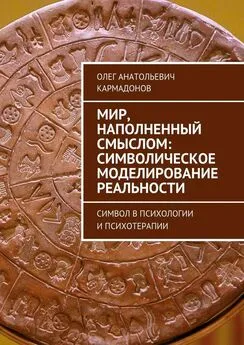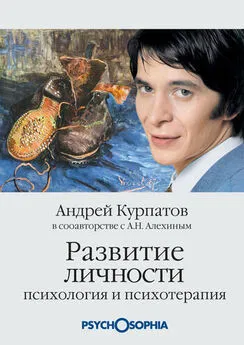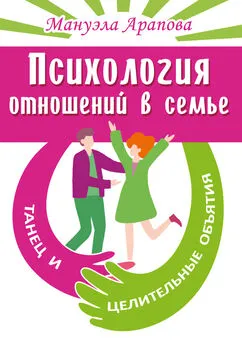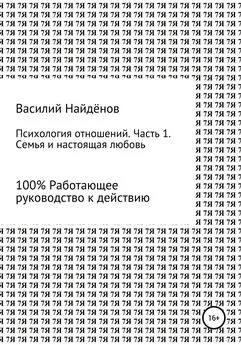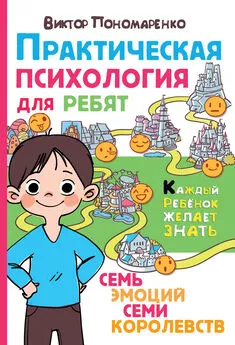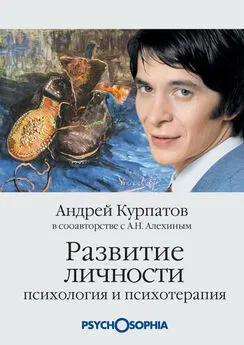Эдмонд Эйдемиллер - Психология и психотерапия семьи
- Название:Психология и психотерапия семьи
- Автор:
- Жанр:
- Издательство:неизвестно
- Год:неизвестен
- ISBN:нет данных
- Рейтинг:
- Избранное:Добавить в избранное
-
Отзывы:
-
Ваша оценка:
Эдмонд Эйдемиллер - Психология и психотерапия семьи краткое содержание
Четвертое издание монографии (предыдущие вышли в 1990, 1999, 2001 гг.) переработано и дополнено. В книге освещены основные психологические механизмы функционирования семьи – действие вертикальных и горизонтальных стрессоров, динамика семьи, структура семейных ролей, коммуникации в семье. Приведен обзор основных направлений и школ семейной психотерапии – психоаналитической, системной, конструктивной и других. Впервые авторами изложена оригинальная концепция «патологизирующего семейного наследования». Особый интерес представляют психологические методы исследования семьи, многие из которых разработаны авторами.
Издание предназначено для психологов, психотерапевтов и представителей смежных специальностей.
Психология и психотерапия семьи - читать онлайн бесплатно ознакомительный отрывок
Интервал:
Закладка:
The third section deals with the family communication. The main idea is that all ample literature of the topic deals only with communication channel: – it is with communication stages that follows after the decision to communicate some message to another family member is taken. Our idea is that the most important stage is what happens before – the «zero – stage» of communication channel, it is the stage when the decision to «send a message» still is not taken. In fact a family member takes this decision by committing some mental experiment in his mind. He 1) has to recognize a situation (a problem) as one which requires to send a message to involved family member (a communication event), 2) tries to image the whole event (how the message will be given by him and accepted by another side), 3) what change in situation and what further consequences it is going to bring.
During this stage the whole event is «rehearsed», the very possibility of it is regarded, the content and ways of communication are shaped. This «zerostage» of communication event is an individual «communication manager», shaping both mutual expectation and ways in which these expectations are precised. So, just on this stage important prerequisites of the success or failure of a communication are laid.
So, we tried to demonstrate prospects of investigating and considering in therapy of these zero – stage processes.
To investigate these processes we have proposed the concept of «communication deficit». It means that considering any family problem we have to answer «the zero – stage question: „What message (if any) sent by one family member to another would have been able to facilitate the solution of the problem?“. After answering this question reasons are regarded for which the very idea of communication does not emerged.
If it emerged then how went on the «mental communication experiment» in the mind of the family member, how this experiment facilitated or stopped the communication, how it regulated way and content of a message, how a member of a family reacted to its own decision that communication is impossible.
A lot of clinic cases are considered showing ways how a communication deficit can be analyzed in different situations.
The fourth section considers ways in which the family solves its integration and re integration problems. Three main mechanism are examined: problem solving in the family, «common destiny» and emotional identification mechanisms.
Family problems are most important engine for a family to develop its structure. Ways family chooses to solve these problems are decisive in predicting what impact will these problems have upon its structure and functioning. Early family therapist (like Bell and Bowen) stressed this family ability to define and solve its problems in a rational and effective way and also it ability to resist factors pushing it to irrational ways in solving family problems. Later development in family therapy seems to loss these approach and to stress «less rationalistic» views of the family. Despite of this in this section we try to show how promising this neglected approach can be also for modern psychotherapy. We have developed the concept of special cognitive roles in the family.
They are ones which develop in it when it arrives a problem and tries to solve it. Problem solving behavior within the family usually is followed by development of a special cluster of cognitive roles. This cluster can be observed when family discusses its real or artificial (test) – problems. The interrelation between the structure of these cognitive roles and effectiveness of family problem solving was examined. On this bases the idea of a rather strong boundary between clusters of cognitive roles in the family and its usual permanent roles is presented. Such boundary is supposed to be the main structural precondition for effective problem solving and reintegrating a family.
Ways in which structural prerequisites for this can be created are discussed in this section. Clinical experience affecting families is surveyed.
Another important structure in integrating and reintegrating a family are emotional identification between members of a family. Relations of sympathy, emotional attraction, attachment, affection in the family can be highly important but also highly choose, capricious.
They are also highly sensitive to any incongruence between ones emotional (often unconscious) preferences, expectations, needs, on the one side, and a real personality and behavior of other family members, on the other. So, in this chapter a method is presented to analyze these emotional expectations of family members to each other and to check the reactions that arise if the expectations are not met. The experience in using this method in family therapy is referred.
The nest section deals with the family role system. Concept of «pathological» (inflicting) role is discussed. It is shown that the concept has to be supplemented by concept of «latent family role». The latter means a family role that actually are not played by any family member but is highly possible to be actualized under some special conditions producing «pathological roles». These condition are surveyed and it is shown that every single of them is important for «pathological role» to survive. This is important elaborating methods counteracting these roles. The ways to deal with the «role pathology» are discussed. The chapter III considers methods of the family diagnosis
and family therapy. Today a lot of family assessment measures, coding and rating schemes, selfreport scales and questionnaires has been developed. Ample surveys referring them are published (H. Grotevant, C. Carlson, 1989). So the main aim of this book was to discuss the philosophy of assessment and to evaluate possible approaches.
Our experience in assessment of a family is referred and illustrated by clinical cases.
The last chapter refers some special problems that arise using the family psychotherapy dealing with special somatic and psychic diseases. Main concepts and experience in family therapy dealing with tuberculosis of the lungs, hypertensive disease, ischemic heart disease, myocardial infarction, ulcerative disease of the stomach, duodenal ulcer, diabetes, ulcerative colitis were discussed. Our long experience (both successeful and unsuccesseful) adapting and trying different family therapy approach in treatment of schizophrenia (especially considering recent successes in Expressed Emotion ЕЕ investigation and methods), neurosis, abnormal personality in adults and adolescents is referred.
The book is completed by original family assessment methods that were developed and intensively used in our work.
СПИСОК ОСНОВНОЙ ЛИТЕРАТУРЫ
Родители остаются одни
Александер Ф., Селесник III. Человек и его душа: познание и врачевание от древности до наших дней. М.: Прогресс-Культура, 1995.
Алешина Ю. Е. Цикл развития семьи: Исследования и проблемы // Вести. Моск. ун-та. Психология, Сер. 14. 1987. № 2. С. 60–72.
Андреева Г. М. Социальная психология. М.: МГУ, 1980.
Анохин П. К. Избранные труды: Системные механизмы высшей нервной деятельности. М.: Наука, 1979.
Бехтель Э. Е. Донозологические формы употребления алкоголя. М.: Медицина, 1986.
Бокий И. В., Цыцарев С. В. Патологическое влечение к алкоголю у больных алкоголизмом в ремиссии: Клинико-психологический анализ // Ремиссии при алкоголизме: Сб. науч. тр. / Под ред. И. В. Бокий, О. Ф. Ерышева, Т. Г. Рыбаковой. Л., 1987. С. 7–19.
Браун Дж., Кристенсен Д. Теория и практика семейной психотерапии. СПб.: Питер, 2001.
Величковский Б. М. Современная когнитивная психология. М.: МГУ, 1982.
Варга А. Я., Будинайте Е. Л. Теоретические основы системной семейной терапии // Системная симейная терапия: классика и современность. М.: Класс, 2005.
Витакер К. Полночные размышления семейного терапевта. М.: Класс, 1998.
Волкова А. П., Трапезникова Т. М. Методические приемы диагностики супружеских от ношений // Вопросы психологии. 1985. № 5. С. 110–116.
Воловик В. М. Семейные исследования в психиатрии и их значение в реабилитации больных // Клинические и организационные основы реабилитации психически больных. М., 1980. С. 207–267.
Воловик В. М., Еайда В. Л., Коцюбинский А. П. Исследование семьи и семейная терапия при шизофрении // Семейная психотерапия при нервных и психических заболеваниях / Под ред. В. К. Мягер и Р. А. Зачепицкого. Л., 1987. С. 20–31.
Еиляровский В. А. Избранные труды. М.: Медицина, 1973.
Еозман Л. Я., Шлягина Е. И. Психологические проблемы семьи // Вопросы психологии. 1985. № 2. С. 186–187.
Еолод С. И. Стабильность семьи. Л.: Наука, 1984.
Еончарская Т. В. Методика функциональной тренировки поведения в психотерапии больных малопрогредиентной шизофренией // Клинико-психологические исследования групповой психотерапии при нервно-психических заболеваниях / Под ред. Б. Д. Карвасарского, Е. Ф. Бажина, В. М. Воловика. Л., 1979. С. 126–130.
Еребенников И. В. Воспитательный климат семьи. М.: Знание, 1976.
Еруздева Е. В., Чертихина Э. Т. Труд и быт советских женщин. М.: Политическая литература, 1983.
Еубачев Ю. М., Иовлев Б. Д., Карвасарский Б. Д. и др. Эмоциональный стресс в условиях нормы и патологии человека. Л.: Медицина, 1976.
Еубачев Ю. М., Стабровский Е. М. Клинико-физиологические основы психосоматических соотношений. Л.: Медицина, 1982.
Еузиков Б. М., Зобнев В. М., Мейроян А. А., Рыбакова Т.Е. Групповая и семейная психотерапия при алкоголизме: Методические рекомендации. Л., 1980.
Демиденко Т.Д., Львова Р. И., Калягина Л. В. и др. Роль семьи в реабилитации постинсультных больных // Семейная психотерапия при нервных и психических заболеваниях. Л., 1978. С. 136–141.
Читать дальшеИнтервал:
Закладка:




